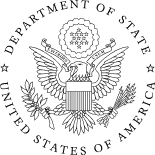You decide to give Myca limited aid and impose trade sanctions.
You hope that these actions pressure the president to release the striking miners and hold elections.
The president issues a public statement saying that Myca will not be blackmailed. The U.S. ambassador to Myca tells you that the president’s political allies are complaining that her decision will fuel further civil unrest.
Next, you inform the U.S. trade representative of your decision. He says that the country of Potar, a U.S. ally, just opened a new graphite mine. He will start negotiating a trade agreement with them immediately. The supply chain disruption will delay the development of the solar battery, but only by a few months. USAID says that it will send as much aid as it safely can, but it will be much less than Myca needs.
— Potar’s minister of tradePotar is very interested to explore graphite trade ties with our ally, the United States.
— U.S. trade representativePositive incentives make you feel better, but sometimes sanctions are the only way to get a regime to change its mind.
— International Red Cross directorEven though the government violated international norms, I’m glad the U.S. is still giving Myca some humanitarian aid. We can’t let people suffer.

